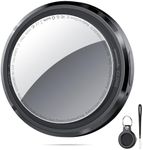Buying Guide for the Best Luggage Trackers
Choosing the right luggage tracker can make your travels much less stressful by helping you keep tabs on your bags wherever you go. The best approach is to think about how and where you travel, what devices you already use, and how much detail you want about your luggage’s location. Understanding the main features of luggage trackers will help you pick one that fits your needs and gives you peace of mind during your journeys.Tracking TechnologyTracking technology refers to the method the device uses to locate your luggage, such as GPS, Bluetooth, or cellular networks. This is important because it determines how accurately and how far away you can track your bag. Bluetooth trackers are great for short-range tracking, usually within a few dozen meters, making them ideal for finding bags in airports or hotels. GPS and cellular trackers offer global coverage, so you can track your luggage almost anywhere in the world, but they may require a subscription. If you mostly travel locally or want to find your bag nearby, Bluetooth is enough. For international or long-distance travel, GPS or cellular is a better fit.
Battery LifeBattery life is how long the tracker can operate before needing a recharge or battery replacement. This matters because you don’t want your tracker to die in the middle of a trip. Some trackers last only a few days, while others can go for months or even a year. If you travel often or for long periods, look for a tracker with a long battery life or one that’s easy to recharge. For occasional travelers, a shorter battery life may be acceptable as long as you remember to charge it before each trip.
Size and WeightSize and weight refer to how big and heavy the tracker is. This is important because you want a tracker that fits easily in your luggage without adding noticeable weight or taking up space. Smaller, lighter trackers are less likely to be noticed or removed, and they’re easier to hide in a pocket or lining. If you have small bags or want to use the tracker in different types of luggage, choose a compact and lightweight model.
CompatibilityCompatibility means which devices or apps the tracker works with, such as iPhones, Android phones, or specific tracking networks. This is important because you want to be able to easily check your luggage’s location from your own phone or device. Some trackers only work with certain brands or require you to use a specific app. Make sure the tracker you choose is compatible with your smartphone and any other devices you plan to use.
Alert FeaturesAlert features are notifications or alarms that let you know if your luggage is moving, leaving a certain area, or being opened. This is important for security and peace of mind, especially in busy places like airports. Some trackers can send you a message if your bag is left behind or if someone tries to tamper with it. If you’re concerned about theft or losing your bag, look for a tracker with strong alert features.
Water and Impact ResistanceWater and impact resistance describe how well the tracker can handle being dropped, bumped, or exposed to moisture. This is important because luggage can be handled roughly or exposed to rain and spills during travel. A tracker with good resistance will keep working even if your bag gets wet or knocked around. If you travel in all kinds of weather or check your bags often, choose a tracker that’s built to withstand tough conditions.
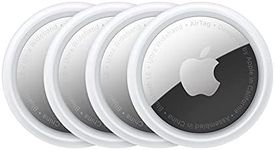
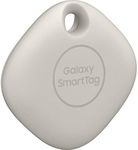
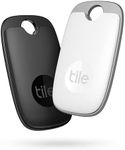
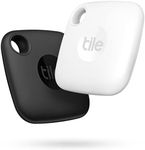
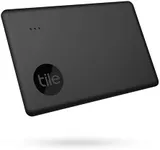
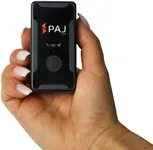
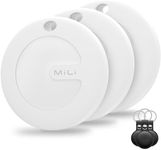

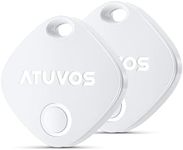



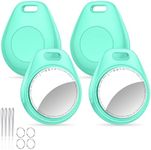

![2026 New [Apple MFi Certified] Air Tracker Tags-4 Pack (iOS Only), Tukio Bluetooth Tracker for Apple Find My, Replaceable Battery, Key Finder and Item Locator Smart Tag for Keys, Bag, Luggage and More](https://images-proxy.bestreviews.guide/faRHVZ0VMZH84B_VwJL6WP3xYac=/0x150/https://m.media-amazon.com/images/I/515U0f26BKL._AC_CX679_.jpg)
